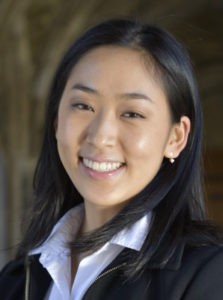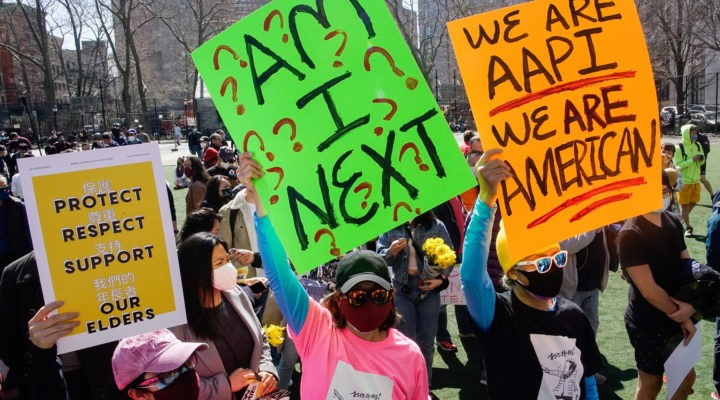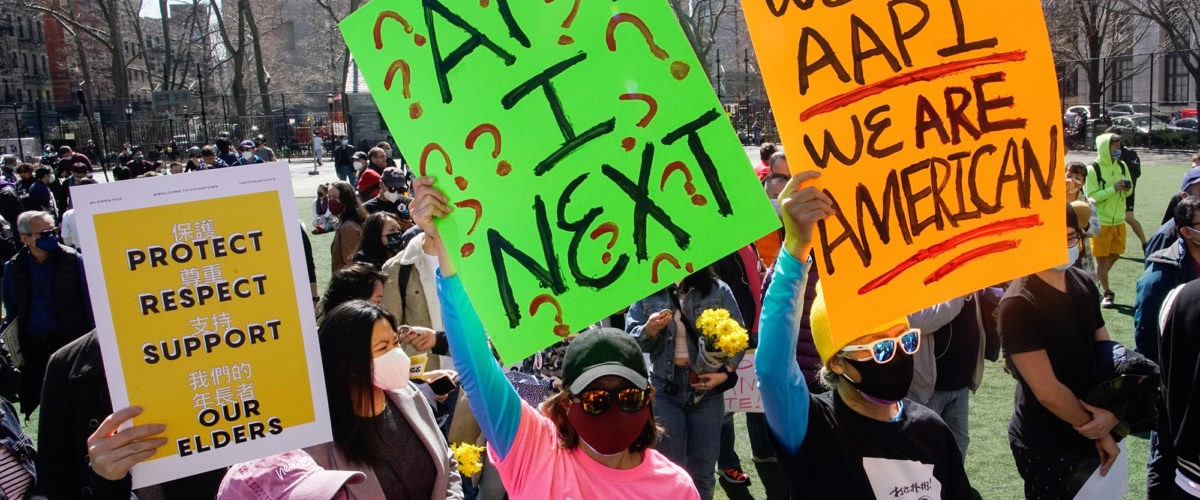As I struggled with understanding the terrible events happening within the Asian American and Pacific Islander community over the last year, I found myself writing down my thoughts, an outlet I frequent a lot. The more I wrote down my emotions, the more I felt I needed to speak out. For the first time, it feels like a spotlight is being shone on the AAPI community. We cannot remain silent any longer; our stories need to be shared and heard.
The headlines I’ve read in the past 365 days have been abhorrent and despicable. The elderly are just now getting vaccinated, deeming it safe for them to leave their houses. Now, they fear for their lives because of the rise in hate crimes.

Elisabeth Sophia Lee
When I imagine my own grandparents and family members in that position, my eyes begin to well. It is heartbreaking to know that people have to be murdered in order for attention to be brought on anti-Asian racism.
Our community is, and has been, hurting and angry. For too long, our experiences have been suppressed, gaslighted, silenced and talked over. As I dealt with guilt for vocalizing these issues, I reminded myself that the AAPI community is begging for basic human rights. So why are people reacting as if we’re asking for a tall favor?
The past two weeks have been overwhelming, to say the least. Through social media posts, I have read the exact thoughts I’ve suppressed for most of my life. For too long, racism and misogyny toward AAPI and AAPI women, especially, have been normalized. I have heard stories so similar to my own that I hadn’t labeled them as “racist” encounters until recently.
This realization has been so overwhelming that I have broken out into tears on walks, during class, during my meals, and during my meetings. I cannot focus on schoolwork, and I feel like I have no self-control with my emotions due to the trauma committed against our AAPI community.
Throughout my life I have been an outcast, called racial slurs and publicly fetishized to my face. I have been told to “go back to North Korea” and “your lunch smells weird” countless times. People have mocked the shape of my eyes and have asked if I “could even see.” I’ve been told, “You are so pretty for an Asian” and, “I’m actually really into Asians.”
“It is heartbreaking to know that people have to be murdered in order for attention to be brought on anti-Asian racism.”
These comments are both old and new. You never can truly understand the emotional weight those words carry until years have passed and those are the only conversations you can recall from elementary school, middle school, high school and college.
To my AAPI friends: I hope and pray that you digest the news at your own pace and in your own timing. When our institutions and organizations do the bare minimum, or fail to provide us support, know that I am here to listen and talk with you.
To my non-AAPI friends: I ask that you educate yourselves by listening to our stories and donating and supporting our businesses, publications and organizations. Share resources on your platforms no matter how small or large your audience is. Call out racist remarks and microaggressions because when you fail to stand up, it is only further normalized. Check up on your Asian American friends — ask us what you can do, how we are feeling, but also give us space if we need it. It is one thing to see your outward support on social media, but it is another to really feel it through a text, a call or a meeting.
We need allies and we need support and solidarity. Because as much as I know AAPI have the strength to tackle this issue alone, given the colonialism, sexism and racism that is so deeply rooted in the country we live in, we can’t.
Elisabeth Sophia Lee is a second-year undergraduate student at Cornell University, where she studies human biology, works in a nutrition lab, is on the executive board for Cornell Undergraduate Research Board and CHAARG, a national women’s health and wellness organization, and is a dancer with the Impact dance troupe. She is the author of Mother Daughter Speak co-written with her mother, Grace Ji-Sun Kim, and works as an intern at Osmosis – Knowledge Diffusion.
Related articles:
Life lessons from speaking with a foreign accent | Opinion by Grace Ji-Sun Kim
In Atlanta, more denial of persistent racism | Opinion by Sid Smith III
It was a bad week for women, but it wasn’t unusual | Opinion by Susan Shaw
Don’t let the Atlanta shooter off the hook by claiming women drove him to addiction | Opinion by Kaleb Graves
Racists don’t get to define racism | Opinion by Jakob Topper


